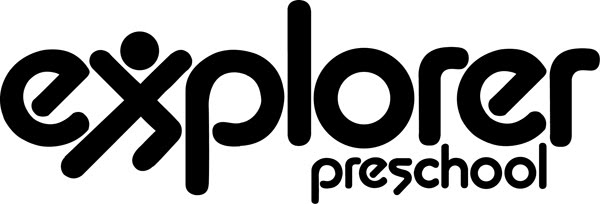By Teacher Konne Ainsworth, Explorer Director
Several commitments at Explorer have set the course of the school. The commitment to parent education definitely sets us apart. There is often confusion about parent education and parent participating. There can be a huge difference between the two. At Explorer, we are not just a school with parents “babysitting” kids and washing paint brushes. We train parents to be good observers not only here, but at home. We train parents to work in a professional way with children, using the tenets of positive discipline and using observations to teach the developmental norms of each age group. We budget for parent education classes (PECs) that are the envy of some schools. We try to have excellent classes and challenge parents to be better parents at the school, at home, and in the community.
Another commitment is to have high quality teachers and hold them to a high standard. Our teachers are highly trained and have experience and a commitment to professional growth. The board at Explorer is very supportive of the teachers and continues to respect their input and also implements the programs that the teachers value. Our teachers have also worked and played together for years and have mutual respect for each other, helping one another be the ‘best that they can be.’
We are also committed to giving the teachers autonomy to develop curriculum and provide enrichment activities that other schools cannot provide, such as art shows, dad’s days, and field trips, which include the Monterey Bay Aquarium and summer camps, to highlight fun activities for mixed ages. Our curriculum is based on Developmentally Appropriate Practice and is aligned with Creative Curriculum, but includes the California state curriculum framework standards for preschool.
As the director, I encourage teachers, parents, and children to embrace the natural world, while acknowledging that we are in Silicon Valley, a science Mecca. Science is the foundation of learning, so I believe that teachers and children need to ‘explore’ the world as it relates to children. We encourage the scientific method and promote inquiry in all areas of learning.
A big decision and commitment was made to move to Willow Glen. We have enjoyed the facility, building a $160,000 yard complete with vegetation, which supports children learning in a safe, challenging, and natural environment. We love the outdoor classroom: with its water play, garden, physical challenge area, and large enough space that fosters independence. Willow Glen was surprisingly multi-ethnic, and we have enjoyed the many cultures that have joined to make the Explorer community. It is nice to teach in a community that embraces diversity, so we can actually ‘live it’, instead of just reading about it.
And, I also feel I made a good decision with my commitment to stay on at Explorer---to grow and learn as a parent, teacher, and member of the community.
